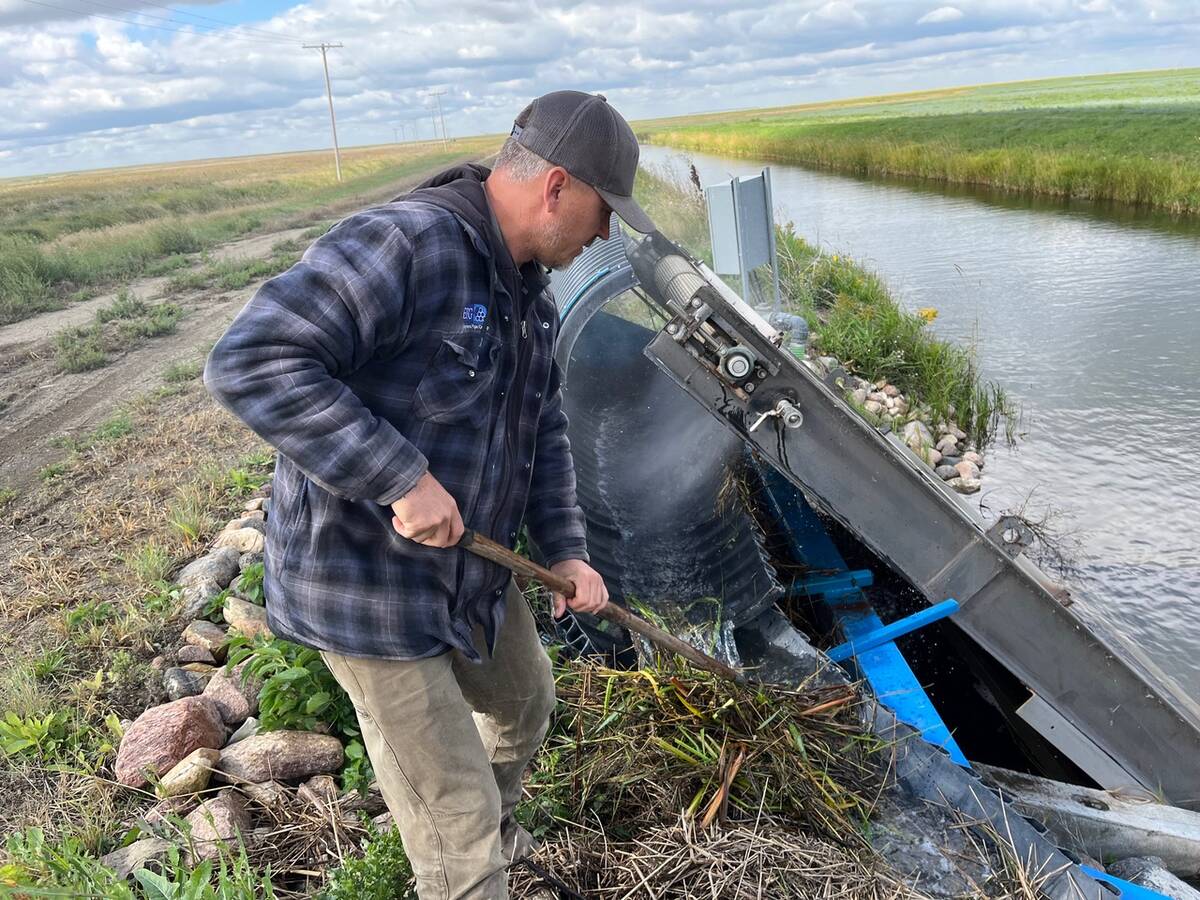A Saskatchewan meat processing company plans to address a longstanding shortcoming in the organic beef sector.
Diamond 7 Meats intends to build a plant in Lloydminster, Sask., capable of slaughtering organic cattle to international standards and processing the meat into packaged shelf-ready products.
The BSE crisis has spurred chatter from various groups about expanding Canada’s slaughter capacity, but little in the way of sod-turning ceremonies.
The owner and general manager of Diamond 7 insists his project is more than just a pipe dream; it was in the works long before BSE was discovered in Canada last May.
Read Also

Saskatchewan farmer uses tile drainage to manage water
The integration of both irrigation and tile drainage results in higher yields, water efficiency, improved soils and less nutrient runoff, says one producer.
“A lot of people are talking about wanting to build (a plant), whereas we have been planning this for 41/2 years now,” said Aron Lundquist.
A few years ago the company got started on a similar project in Maidstone, Sask., where Diamond 7 operated a small store, but plans to build a new federally inspected plant there fell through due to a zoning dispute with the town.
That prompted Diamond 7 to close its Maidstone store and buy an existing provincially inspected processing plant in Lloydminster, with enough surrounding property to revive plans for a larger packing facility that would be inspected to European Union standards.
“We bought this business with the thought in the back of our heads, this is where it’s being built, on this property.”
The Lloydminster site gives Diamond 7 access to all the necessary components for such a project – a sizeable labour force, treated water and sewage, paved roads and good transportation options.
Lundquist said the company is “heavy into” the project’s planning and development stage, but wouldn’t say when construction would begin or what kind of slaughter capacity the plant would have.
However, he said the focus of the business plan is to provide slaughter, cutting and further processing services to organic and natural beef producers as well as elk and buffalo farmers.
“We would try to stay out of conventional beef,” Lundquist said. “I have no intention of competing with multi-billion dollar corporations.”
Organic producers say the plant would be a welcome addition to the scant portfolio of processing options available to them.
Sam Rhode, president of the Canadian Organic Livestock Association, said there are no federally inspected plants in Manitoba that handle organic livestock, one in Saskatchewan and four in Alberta. Most of those provide only slaughtering services.
“It is time. We need a plant,” Rhode said.
“It will enable us to slaughter and process right here rather than (sending animals) down east and shipping it all back again.”
Larry Frith, co-ordinator of Producers of the Diamond Willow Range, a co-operative of seven ranches near Pincher Creek, Alta., would also like to see a new facility.
“There is a real need for plants that will not just kill, but will box and further process, break beef down to shelf-ready, basically. That’s in short supply.”
Even facilities that slaughter only organic cattle are hard to find.
Diamond Willow overcame that problem by paying the organic certification bill for a local federally inspected slaughterhouse.

















